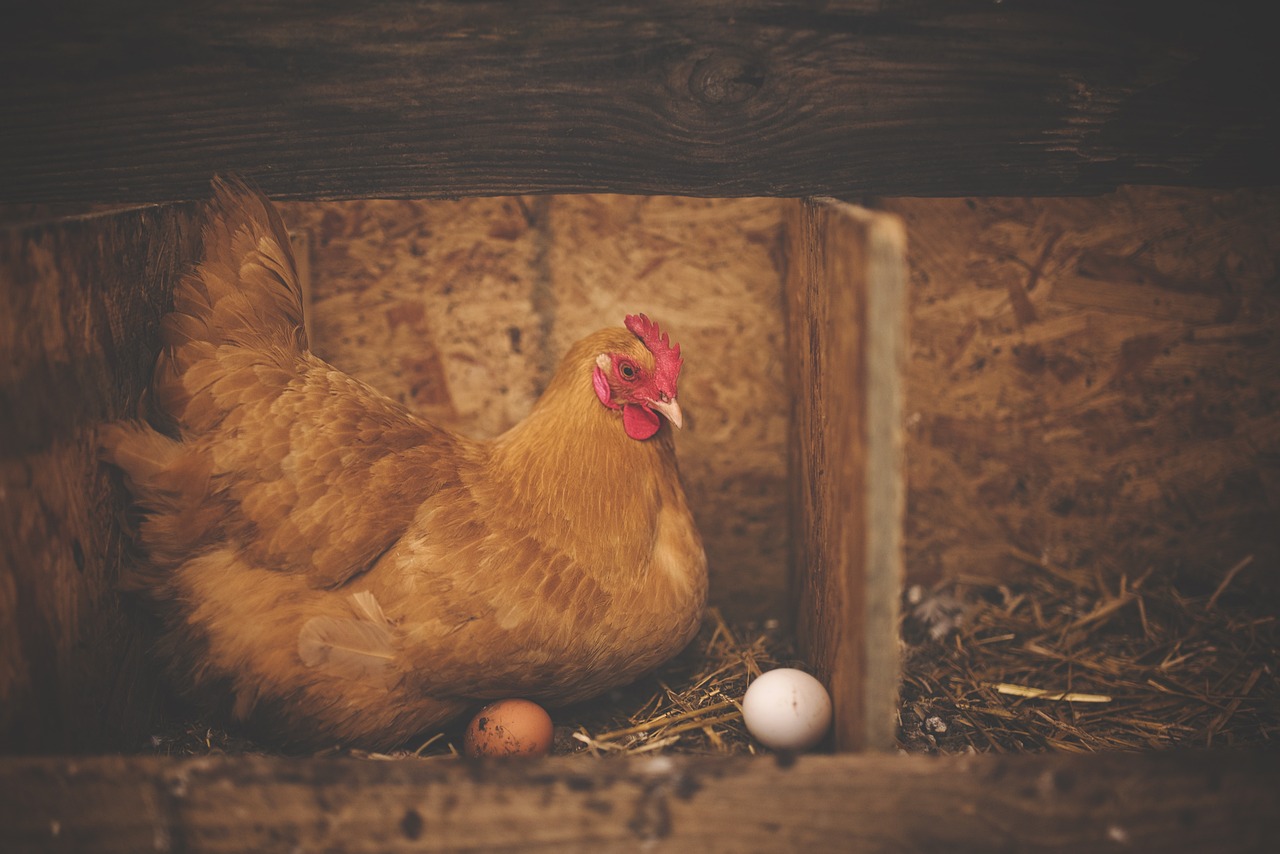Why Do Chickens Stop Laying Eggs? Top 10 Reasons Explained

Raising chickens can be a rewarding experience, especially when you have a steady supply of fresh eggs. However, there are times when chickens may stop laying eggs, which can be puzzling and frustrating for any poultry keeper. Understanding the reasons behind this can help you address the issue and get your chickens back on track. Here are the top ten reasons why chickens might stop laying eggs.
1. Age
As chickens age, their egg production naturally declines. Most hens lay the majority of their eggs in their first two years of life. After this period, the number of eggs they produce begins to decrease significantly. By the time a hen reaches four or five years old, she may stop laying altogether.
This decline is due to the natural aging process and the depletion of the hen’s egg-laying capabilities. While older hens may lay fewer eggs, they can still be valuable members of your flock, offering companionship and contributing to the social structure of the group.
2. Molting
Molting is a natural process where chickens shed their old feathers and grow new ones. During this time, hens often stop laying eggs. Molting typically occurs once a year and can last several weeks to a few months.
The energy that would normally go into egg production is redirected towards feather growth, which is why egg-laying halts. Providing extra nutrition, particularly protein, can help your chickens get through the molting period more quickly and resume laying eggs sooner.
3. Stress
Chickens are sensitive creatures, and stress can significantly impact their egg production. Common stressors include changes in their environment, such as moving to a new coop, the introduction of new flock members, or predators.
Other sources of stress can be poor living conditions, such as overcrowding, inadequate nutrition, or lack of clean water. Minimizing stress by maintaining a stable environment, providing ample space, and ensuring proper nutrition can help keep your hens laying regularly.
4. Nutrition
A balanced diet is crucial for consistent egg production. Chickens require a diet rich in proteins, vitamins, and minerals. If their diet is lacking in any of these nutrients, it can lead to a decline in egg production.
Calcium is particularly important for laying hens, as it is needed for strong eggshells. Providing a commercial layer feed and supplementing with oyster shells or crushed eggshells can help ensure your chickens receive the necessary nutrients to produce eggs.
5. Light
Chickens need adequate light to maintain egg production. They require about 14-16 hours of light per day to keep laying consistently. As the days get shorter in the fall and winter, hens may stop laying eggs if they do not receive enough light.
You can extend daylight hours by using artificial lighting in the coop. A simple light bulb on a timer can help ensure your chickens get the light they need to continue laying eggs throughout the shorter days.
6. Broodiness
Broodiness is when a hen decides she wants to hatch eggs and becomes more interested in sitting on the nest than laying eggs. A broody hen will stop laying eggs and may even become territorial or aggressive.
Breaking a hen’s broodiness can be challenging, but it is possible. Methods include removing her from the nest regularly, providing a broody breaker cage, or cooling her down by placing her in a wire-bottomed cage. Once the broodiness passes, she should resume laying eggs.
7. Health Issues
Various health issues can cause a decline in egg production. Common ailments include internal parasites, external parasites like mites and lice, or bacterial infections.
Regular health checks and maintaining a clean living environment can help prevent these issues. If you notice a drop in egg production along with other symptoms like lethargy, weight loss, or abnormal droppings, consult a veterinarian for a proper diagnosis and treatment plan.
8. Water Availability
Water is essential for egg production. Chickens that do not have access to clean, fresh water may stop laying eggs. Dehydration can happen quickly, especially in hot weather, and can severely impact egg production.
Ensure your chickens have constant access to clean water. In cold climates, use heated waterers to prevent water from freezing. Regularly clean and refill water containers to keep them free from contaminants.
9. Overcrowding
Overcrowding can lead to stress and competition for resources, both of which can reduce egg production. Each chicken needs enough space to move around, forage, and nest comfortably.
A good rule of thumb is to provide at least 4 square feet of coop space and 10 square feet of run space per chicken. Reducing the number of chickens or expanding their living area can help alleviate the negative effects of overcrowding.
10. Predators
The presence of predators can cause significant stress and fear among your flock, leading to a drop in egg production. Even if predators do not physically harm the chickens, their presence alone can create a stressful environment.
Protecting your coop with secure fencing, predator-proofing measures, and ensuring chickens are locked in safely at night can help reduce the stress caused by predators. Providing a safe and secure environment will help your hens feel comfortable and continue laying eggs.
Understanding the various factors that can affect egg production is crucial for maintaining a healthy and productive flock. By addressing these common issues, you can help ensure your chickens remain happy and continue to provide you with fresh eggs.






